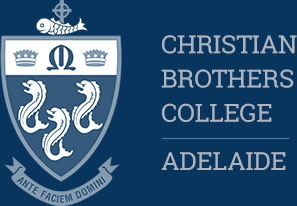Examples of real successes in the classroom environment
St Mary's College, Dalby
Just one for the boys - a reflection
The purpose of this reflection is to discuss my experience of the benefits to be gained in separating boys and girls into separate English classes in year 10. This reflection is given largely from a teacher perspective and outlines learning experiences undertaken and outcomes derived with the boys group. For the purposes of this reflection I will submit my observations as dot points.
- I found that the best way to approach the boys was from a 'warmth and demandingness' angle. My initial lesson involved delivering my expectations for their behavior and work output. One boy did approach me to say '...I'm glad you gave us rules to work with.' This would seem to support the research that suggests boys require structure and boundaries.
- The unit undertaken with the boys, 'Song of Social Comment' (a poetry unit in disguise,) was largely music driven and therefore appealed to the boys. A major argument proposed by numerous authors is that boys performance in literacy is lacking because they see constructions of masculinity as oppositional to constructions of literacy (Alloway and Gilbert, West, Langermann et al). In this unit however, literacy was able to be guised in the form of popular culture texts which I believe significantly contributed to the boys noticeable success at assessment time.
- One of the most significant strategies advocated by stakeholders in addressing the issue of 'boys and literacy' involves the introduction and practice of critical literacy theory within the English classroom (Gilbert and Alloway). During one session I posed the question 'how many roads must a man walk down?' as a lead into Bob Dylan's classic. The brainstorming that followed was overwhelming and revealed a certain fear and vulnerability on the boys behalf. Comments made suggested to me that yes, boys deserve access to knowledge about their social construction as gendered subjects and how they 'do' masculinity in various contexts. What's more is that they know this already, what they require is a forum for deconstructing the stereotypes more regularly.
- My term with the boys also revealed to me that hegemonic masculinity is not done in terms of blatant self-disclosure, introspection, empathetic responses and all those other school literacy practices that I had found worked excessively well with the girls. It seemed that the boys were more comfortable concentrating on things outside of self. Any analysis undertaken in class therefore was very structured, allowing the outcome to be reached not so much through feeling-based discussion, rather through procedural tasks. The conclusions reached by the boys (little did they know) had all the elements of 'feminine'(if I can!) morality; concern for the pain, suffering and injustice of others and a recognition of the their own and other's responsibility, it's just the path taken to get there was different.
- Towards the end of my time with the boys I attended a seminar with David Shores titled 'Social Education'. The timing was paramount. It highlighted to me that yes, boys and girls learn differently, particularly in the English classroom however this cannot become an excuse for denying boys access to social/emotional intelligence and an understanding of what it means to take responsibility. We must promote introspection in our students, especially our impulsive, 'acting out' ones, often boys. Upon returning to the class I engaged the boys in a visualisation exercise, aimed at heightening concentration and reaction to surroundings. Initially they thought lying on their backs in the middle of an English class was a huge joke, however by the end they had managed to transport themselves out of the classroom and immediate situation. Waking them up was the difficulty.
- As an add on…..
The culminating task of the unit required the boys to devise song lyrics around an issue of social significance and then analyse it in terms of poetic technique. What they have to say, gives St Mary's great reason to be very proud. We have a group of empowered young men, who are articulate thinkers. From what the boys have said, single sex classes provide the comfort level necessary for this level of expression. ENJOY!Student A
'It (the song) explores the corrupt veracity of modern-day issues such as possesional lust and greed and the ignorance towards family and personal happiness they instigate.'
Student B
'The message of the song is that child abuse and domestic violence are unacceptable and intolerable in our society because they cause huge psychological trauma from victims.'
Student C
'I realise that the world is quickly falling victim to technology and progress. I also realize that something has to be done about it….'
Student D
'Another factor that inspired me to write the song was the people and families who were affected or lost loved ones, as a result of the attacks (on September 11).'
Student E
'The question is, when is their goal achieved? Is it when they kill one man, or a hundred, or is it maybe when they themselves die? (on the senselessness of war).
Student F
'The lyrics have a significant purpose, that is, to reassure teenagers that they are not the only ones going through tough times… It also helps to know that their situation is not hopeless and that it will get better.'
Student G
'This song is a comparison of the two extremes of society: the rich and the poor and how class movement is rigid.'
My experience with the boys was a positive one. Knowing that I had a very supportive Administration team behind me certainly help catalyse this experience. Humour is an excellent tool to be used with boys or at least acknowledging their comical undertones (within limits). I think often as teachers we feel threatened by this and view it as our lack of control. Boys need this channel! I look forward to term 4!



